Are you worried about how to make rosemary oil on your own in the easiest way? If yes, this article is for you!
Rosemary is one of the popular herbs and widely grown medicinal and aromatic plants even in households. Most of the growers prefer to cultivate rosemary for commercial purposes to extract oil from it which has a great market demand and few will also afford to run a distillation unit. Apart from the commercial aspect, this plant can also be grown in your home gardens considering its potential benefits.
The rosemary plant is perennial in its growth and grows till a good height is achieved. The leaves almost resemble a needle but are very soft and succulent. The leaves are the economical part and once proper height is reached, these are harvested and not left till they bloom. The leaves contain essential oils and some active compounds like rosmarinic acid which has commercial value. It is also surprising to know that rosemary oil is used as an ingredient in some dishes that are made with meat.
The rosemary oil can be used to treat any common skin disease as it possesses antimicrobial properties. Some common ailments like headaches and digestive issues can also be treated with rosemary oil. Rosemary oil is also used in the treatment of aromatherapy which helps in soothing your mind. Keeping all this aside, it is essential to know how rosemary oil is made what are the materials required and what are the steps followed. Having this knowledge will help in making your oil at your home which gives you a sense of satisfaction.
We have always seen rosemary as a normal aromatic plant like any other. But when you try to study it deeply, you will explore many ways where it can be commercially put into use. If not from a commercial standpoint, it can also be used to make your daily essentials such as skin care products. In this article, we shall further explore how to make rosemary oil and what are the limitations in the entire making process and what are the applications of rosemary oil. All these details will be discussed in the article.
In this article, we shall discuss about how to make rosemary oil for commercial use and how to make rosemary oil at home for your own use.
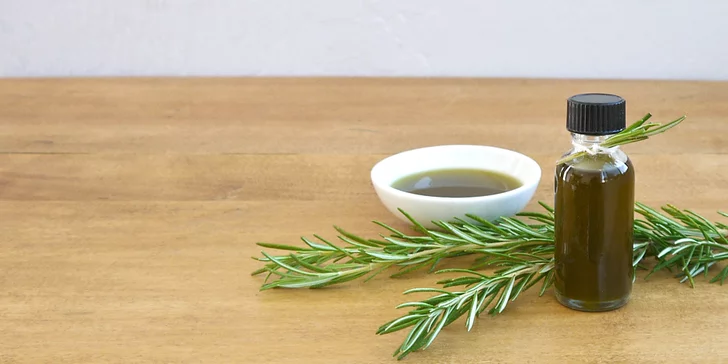
Steps On How To Make Rosemary Oil | How To Make Rosemary Infused Oil
Gather The Materials Needed
All you need is fresh rosemary sprigs. Try to source organic rosemary. Next, carrier oil is needed. For this purpose, you can make use of olive oil or jojoba oil and you also need a saucepan and a clean glass jar that has a tight-fitting lid.
Prepare the Rosemary
Wash the rosemary sprigs thoroughly under cold water to remove any dirt or debris. Pat them dry with a clean kitchen towel to remove excess moisture.
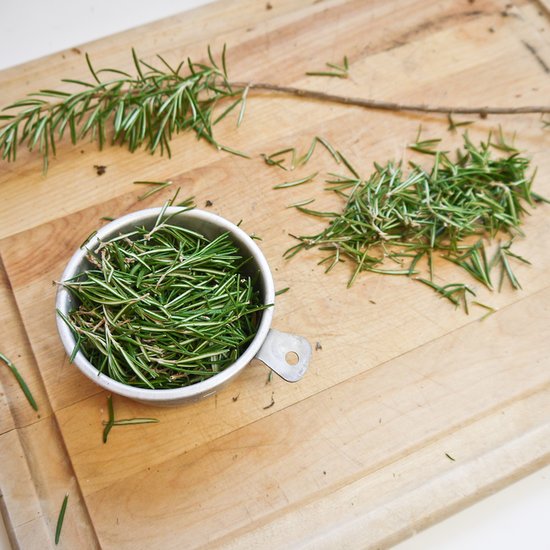
Infusion Process
Place the clean rosemary sprigs into the glass jar, ensuring they fit snugly but are not overly packed. Pour the carrier oil over the rosemary until it fully covers the herbs, leaving a small gap at the top of the jar.
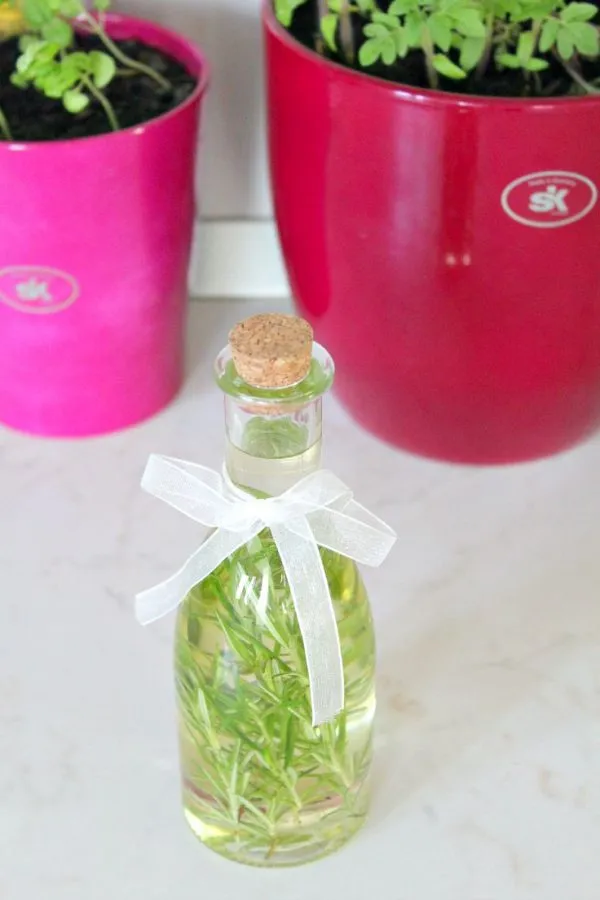
Heating the Oil
To enhance the infusion process, you can gently heat the oil and rosemary mixture. Add small amounts of water into the saucepan put it on the stove and start heating it at a low flame. Set the glass jar with the rosemary and oil inside the saucepan, creating a makeshift double boiler. Heat the oil mixture gently for about 1-2 hours with occasional stirring.
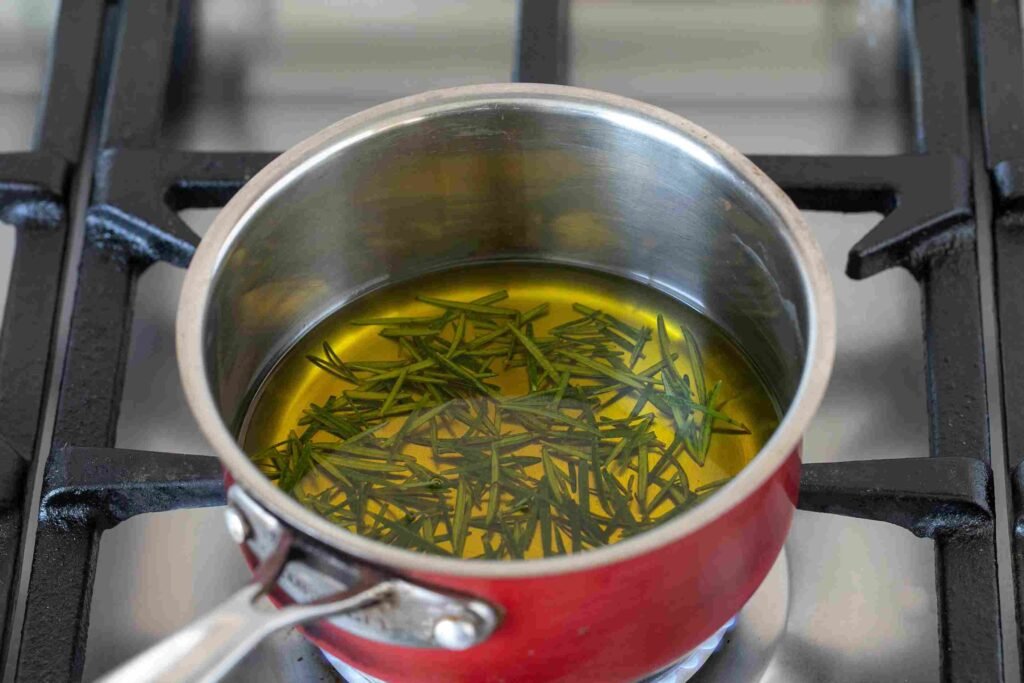
Cooling and Straining
After heating, remove the glass jar from the saucepan and allow the oil to cool to room temperature. Allow it to cool. Once it has cooled, the lid has to be fixed tightly and the jar has to be kept in a cool and dark place. It has to be left aside at least for a week so that the rosemary flavor gets infused into the oil. Shake the jar gently every day to agitate the mixture.
Strain the Oil
After the infusion period (typically one to two weeks), strain the oil through a fine mesh sieve or cheesecloth into a clean container to remove the rosemary sprigs and any sediment. Press down on the rosemary with the back of a spoon to extract as much oil as possible.

Storage
Transfer the strained rosemary oil into a clean, airtight glass bottle or container for storage. Store the oil in a cool, dark place away from direct sunlight to preserve its freshness and potency.
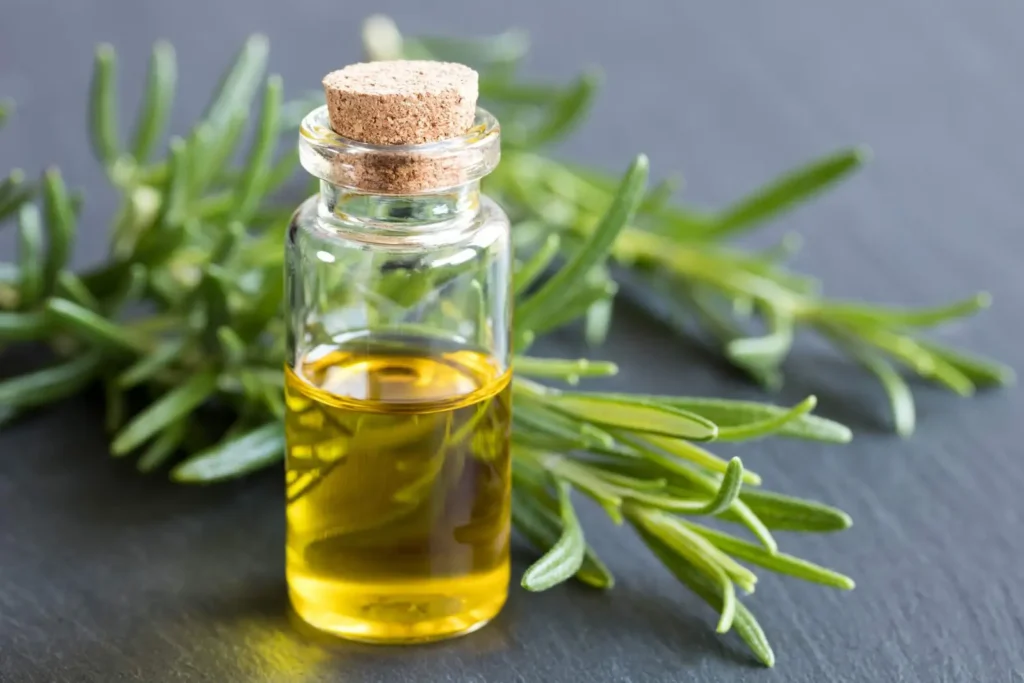
Labeling
Don’t forget to label your homemade rosemary oil with the date of preparation. This will let you know when the oil has been made and a track will be maintained.
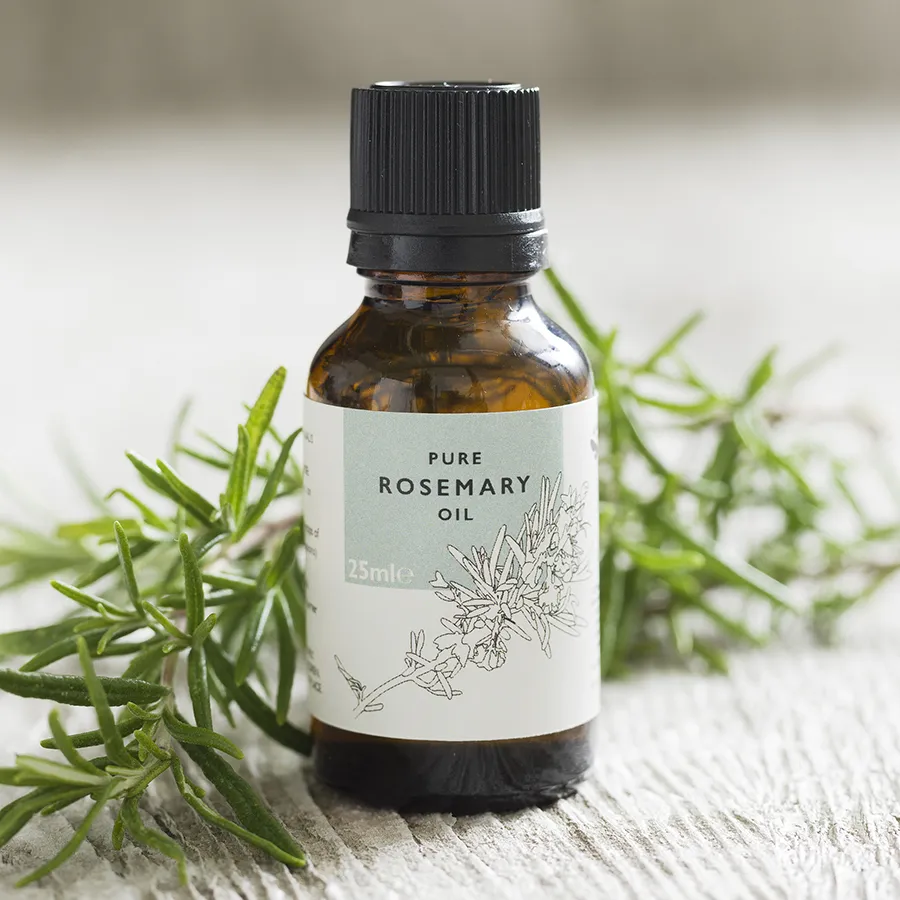
- Why Money Plant is called Money Plant ? Answer in 5 min
- How to Grow Saffron at Home: Amazing Guide for You in Steps
How To Make Rosemary Mint Essential Oil?
The procedure is almost similar to the one mentioned above except that during the infusion process, you can go for adding mint leaves to it so that the mint flavor also gets infused with rosemary and you will be having rosemary mint oil.
How to make rosemary oil for hair growth?
Even to make special oil for your hair, the procedure still stands to be the same. You can infuse the required material like hibiscus and fenugreek seeds during infusion and after the entire process is done, a special hair oil that boosts your hair growth is done!
Also Read
What Are The Limitations In The Process Of Making Rosemary Oil?
Quality of Ingredients
The quality of the rosemary and carrier oil you use will directly impact the quality of the final product. Using fresh, organic rosemary and high-quality carrier oil will result in a more potent and flavorful oil.
Time and Patience
Infusing rosemary into oil takes time, typically around one to two weeks for the flavors to fully develop. Much of attention and patience is required during the infusion process as the majority of the time goes for it.
Risk of Contamination
During the infusion process, there’s a risk of microbial contamination if proper hygiene practices are not followed. Make sure all utensils, jars, and equipment are clean and dry before use to minimize this risk.
Storage and Shelf Life
Homemade rosemary oil should be stored in a cool, dark place to preserve its freshness and potency. However, even with proper storage, homemade oils may have a shorter shelf life compared to commercially produced oils. A constant check needs to be done to look for any signs of spoilage like inconsistency in the oil or development of any off odors or any changes. If any changes are noticed, it should be discarded.
Safety Concerns
When heating the oil and rosemary mixture to enhance infusion, it’s crucial to use gentle heat and monitor the process closely to prevent overheating or burning. This process has to be handled with care as hot oil may cause burns hence avoid direct contact.
Potential Allergies or Sensitivities
Some individuals may have allergies or sensitivities to rosemary or the carrier oil used. It’s essential to perform a patch test before using homemade rosemary oil topically and discontinue use if any adverse reactions occur.
Regulatory Considerations
If you plan to sell homemade rosemary oil or use it commercially, there may be regulatory requirements or labeling guidelines to adhere to depending on your location. Proper research has to be done on the regulations.
Applications Of Rosemary Oil
Medicinal Properties
Traditionally, rosemary has been used for its medicinal properties. Rosemary oil contains active compounds namely rosmarinic acid. If you are suffering from any inconveniences such as digestive issues or headaches, you can use some common medicine that has rosemary oil in it. This gives a great sense of satisfaction accompanied by relief.
Aromatherapy and Fragrance
Rosemary oil is extracted from the leaves of the rosemary plant through steam distillation. Almost every spa center has massage oils in which rosemary oil is also used as an ingredient. It’s commonly used in massage oils, diffusers, and personal care products for its stimulating aroma.
Hair and Skin Care
Rosemary oil is used in the preparation of many essential products that are used by most women as part of their hair care and skincare routine. In almost every hair and skin care product used daily such as shampoos and conditioners, rosemary oil is used.
Home Remedies
Beyond its culinary and aromatherapeutic uses, rosemary and rosemary oil are popular ingredients in various home remedies. It can used to prepare cleaning solutions for household chores and insect repellants can also be made from the same.
Conclusion
This is all about how to make rosemary oil at home. If you are confused about how to make rosemary-infused oil, there’s nothing to worry about because both are the same. Making our products or your essentials would be so satisfying. It is also a cost-effective way anyway. There are many ways where rosemary oil can be put into use in our day-to-day lives. While there are considerations such as ingredient quality, time commitment, and proper storage, the process itself is straightforward and accessible to enthusiasts of all skill levels.
Whether you’re infusing it for personal use or sharing the gift of homemade wellness with others, the journey of making rosemary oil is filled with the satisfaction of creating something pure, fragrant, and beneficial from nature’s bounty. This would also be a great hobby to start organically making our essentials. From the commercial viewpoint, it works out well and you can begin an enterprise with your branding and start marketing the products. For this to happen, one needs to be sure and perfect in the entire making process. Proper research and practice are needed on cultivating rosemary and extracting oil from it.
Own distillation unit can also be set up if going on a large scale. A good market has to be set up and you can even make the products as per the demand in your close circle. Start it small and then your patience coupled with passion can take you to larger heights making every impossibility into a possible thing.
Latest Post
- Study Agriculture Abroad : A Complete Guide for USA
- July Issue (2024): Times of Agriculture Magazine
- Why Money Plant is called Money Plant ? Answer in 5 min
- How to grow Monstera from Cutting: 5-Step Detailed Guide
- Latest 10 Finest Terrace Garden Ideas to Transform Your Rooftops
- Top 10 Low Light Hanging Plants to make your Room Crunchy
- Best Water Harvesting Techniques for a Sustainable Future
- Low Maintenance Indoor Plants for India: 15 Best plants for home gardening
- Top 23 Flowering Trees in India: Flower Tree for Home
- Benefits of Rainwater Harvesting: Amazing Way to Save Water
- How to Grow Hydrangeas From Cuttings? The Best Answer
- How to Grow Cinnamon Plant
- June Issue : Times of Agriculture Magazine (Bitter truth of Mango)
- Solar Irrigation System: A Great Irrigation Technique
- Bamboo Drip Irrigation System in India : a unique Setup


















